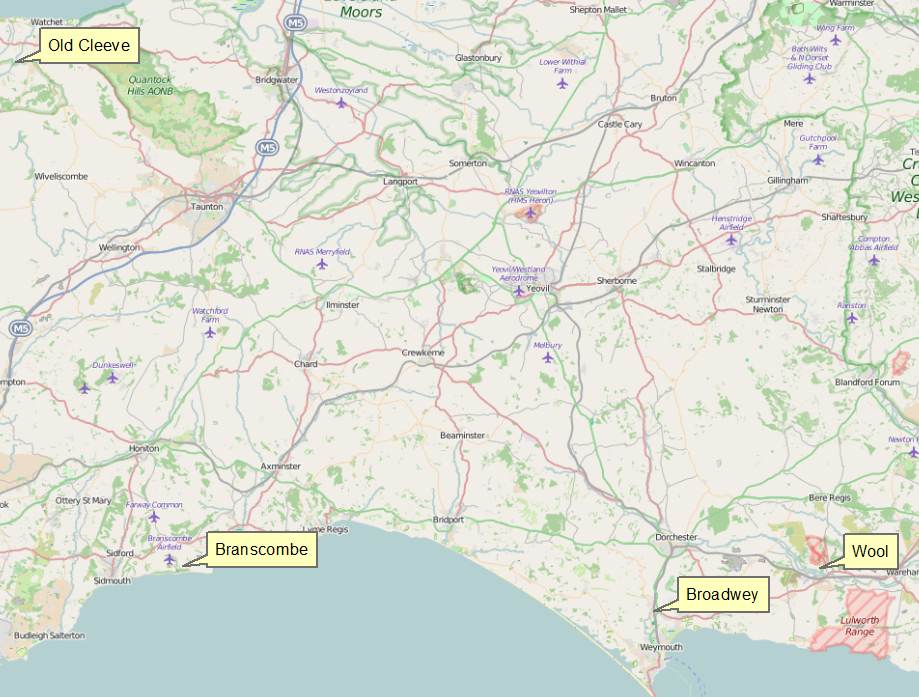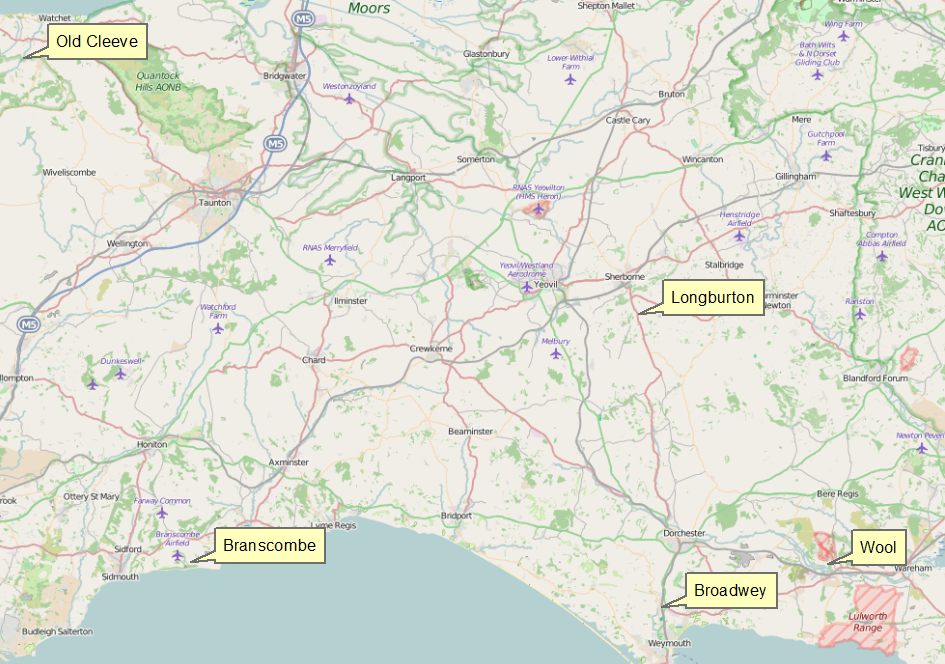My 3rd great grandmother Priscilla Chichester was born illegitimate on 22 Sep 1796 and christened on 16 Oct 1796 at Branscombe, Devon:
Priscilla Chichester, d. of Martha Noak [illeg.] (d. of Israel Noak, a reputable Farmer-tenant under John Stuckey, Esquire, living on Hole Farm & Martha his wife), reputed father Robert Chichester, of Old Cleave, Somerset
Robert Chichester married Martha Noake on 13 Apr 1797 at Branscombe, and they had four more children:
- Jane was born in Old Cleeve, Somerset, according to the 1851, 1861, 1871 and 1881 Censuses. When she was born is not so certain, but her age given at each census indicates 1801 (1841), 1796 (1851), 1798 (1861), 1799 (1871) and 1799 (1881). Taking the ages of her siblings into account, I suspect Jane was born about 1798.
- Giles was christened on 21 Jun 1801 at Broadwey, Dorset
- Jared was christened on 20 Mar 1803 at Broadwey, Dorset
- Thomas was perhaps the youngest but I have not yet found any evidence for when or where he was born. He died as a bachelor in 1838.
In 1804, Robert (and presumably his family) appears to have been leasing Chamberland’s Farm, at Wool, Dorset, from Thomas Sabine, which suggests he may have been a farmer or farm labourer.
As you can see on the map below the three known locations of their children's births are quite some distance apart (about 50 miles, as the crow flies, an much more by any roads).
Why might Robert have first been at Branscombe, and then why might he and Martha as a couple have migrated between Branscombe, Old Cleeve and Broadwey/Wool (before returning to Old Cleeve where they were buried at Leighland Chapel)?

